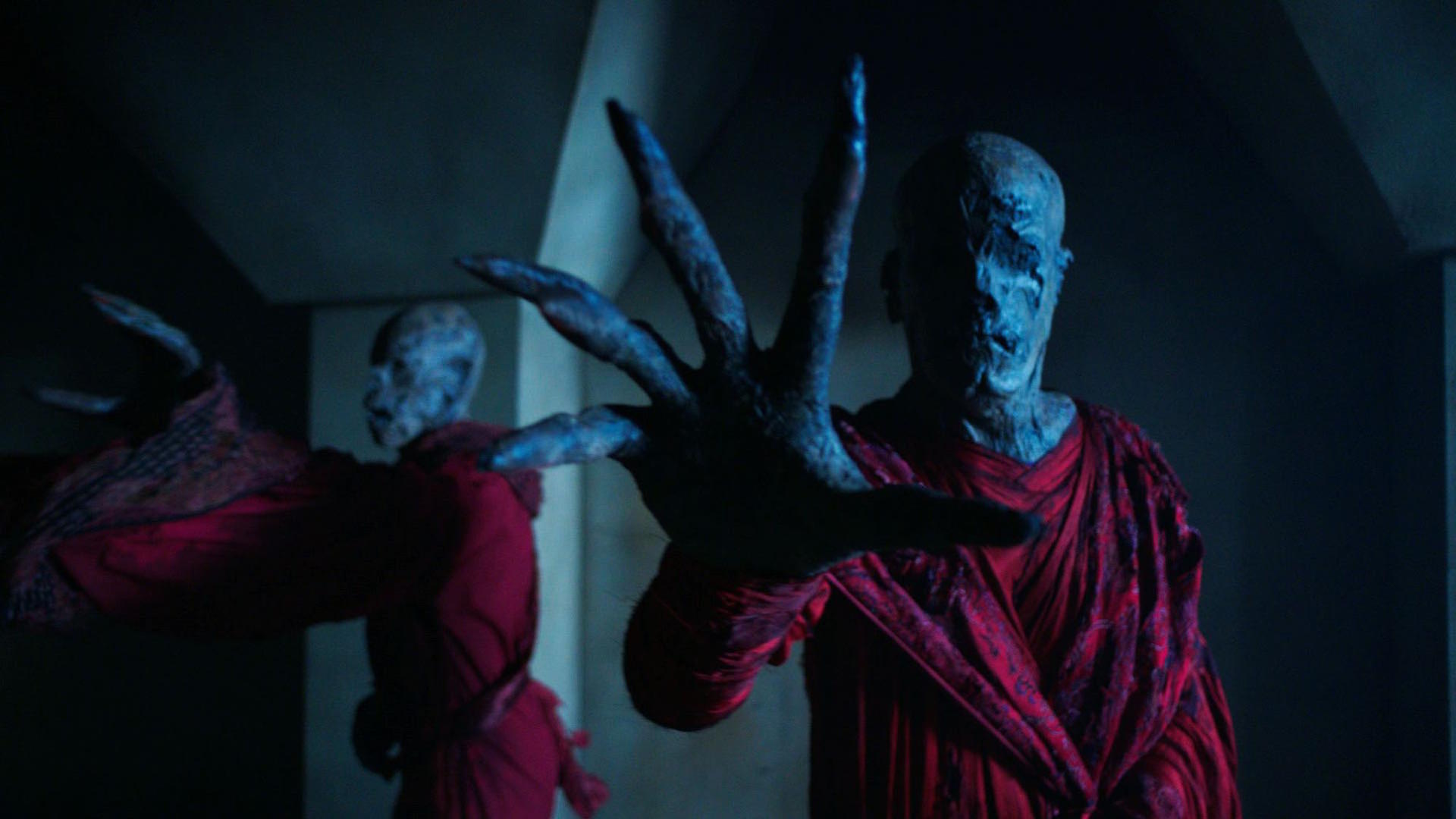THE DOCTOR WHO RATINGS GUIDE: BY FANS, FOR FANS
| Story No. |
295-297 |

|
| Production Code |
Series 10, episodes 7, 8 and 9
|
| Dates |
May 20, May 27 and June 3,
2017
|
With Peter Capaldi, Pearl Mackie, Matt Lucas
Written by
Steven Moffat, Peter Harness, Toby Whithouse
Directed by
Daniel Nettheim, Wayne Yip
Executive Producers: Steven Moffat, Brian Minchin.
|
|
Synopsis: The Monks will invade. The Monks are invading. The Monks have invaded.
|
Reviews
Vacuum... by Flynn Sullivan
22/8/17
And the moral of the story is...? No, there is none. Minor Donald Trump satire aside, nothing that happens in this entire trilogy is relevant to the viewers.
Let me tell you something about storytelling. It has one single reason to exist: to allegorise reality. Children who seek entertainment learn and remember from their experiences. Adults have their worldview expanded. It is an experience on a primal level. We all have our favourite shows, because we love getting to know these people, experiencing their emotions, their thrills and fears. As we learn about others, so we learn about ourselves.
The Monk trilogy is, as Shakespeare so eloquently put it, sound and fury, signifying nothing. We are introduced to an alien race, and, after two and a quarter hours, the writers haven't managed to tell us anything about them. Our characters are sent through the wringer, only to realise again and again that it was all irrelevant. A simulation, a trick.
Dialogue is brought down to the most basic level. The Monks speak of nothing but their intentions to conquer Earth. The Doctor speaks of nothing but stopping them and protecting Bill. Even tied up and with his friend about to die, all that this brainiac can shout is "Stop! I order you! I forbid you!"
His intention to rehabilitate the Master is laughable: it shows a fundamental lack of understanding in both characters on the writers' part. The Master was the Doctor's friend. Past tense. They are two Time Lords of infinite wisdom, both seeking to escape the narrow confines of their existence. The only difference is that one is selfish and the other is not. They see themselves as equals and regret said difference, but they are also defined by it.
The only reason why the Master's redemption in The End of Time and Master was conceivable was because there, the stories were dealing with the pain and suffering his path had led him to. Midlife crisis, if you will. But this isn't such a story. It's not any story, to be honest. We are introduced to concepts for the sake of concepts, and none of them benefit the characters.
The only pleasure to be gained from this entire adventure is from the first part, Extremis, since, in that case, we are at least focusing on a competent mystery set in very intriguing environments: the Vatican and CERN. The simulation side of it also means that the characters can actually suffer somewhat.
But, as often is with Steven Moffat, the competence is a fluke, because he is not a true storyteller. He is the guy who asks "but wouldn't it be cool if...?" And that's just not good enough.

